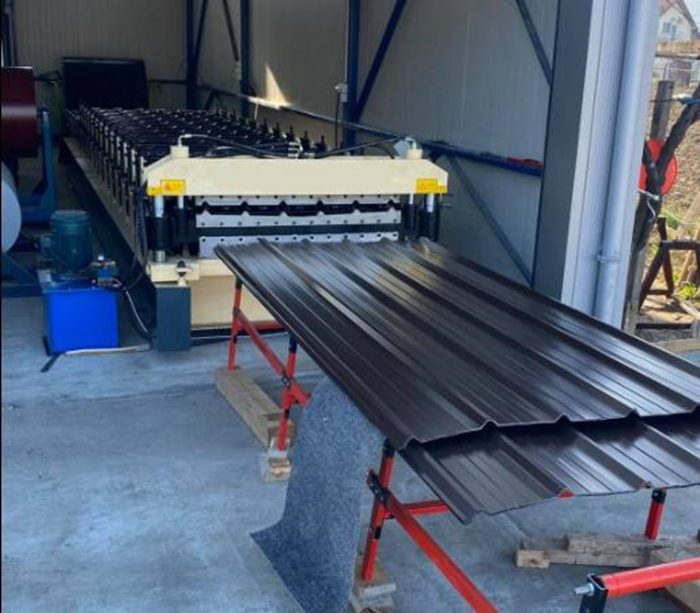drywall stud roll forming machine
Understanding the Drywall Stud Roll Forming Machine
In the modern construction industry, efficiency and quality are paramount. Among the many tools that facilitate these goals, the drywall stud roll forming machine stands out as a vital piece of equipment. This machine plays a crucial role in the production of drywall studs, which are essential components in the framework of interior walls and ceilings. Understanding how this machine works, its advantages, and its application can shed light on its importance in the construction sector.
What is a Drywall Stud Roll Forming Machine?
A drywall stud roll forming machine is specialized equipment designed to fabricate steel studs and track components used in drywall installations. The process begins with a flat coil of steel, which is fed into the machine. The machine then utilizes various rollers to shape the flat steel into specific profiles that meet the standard dimensions required for drywall framework. The continuous roll forming process ensures that the studs produced are uniform and precise in their dimensions, which is critical for construction applications.
How Does It Work?
The operation of the drywall stud roll forming machine involves several key steps. Initially, the steel coil is uncoiled and fed into the machine. Rollers within the machine gradually shape the steel through a series of mechanical processes involving bending, cutting, and sometimes punching holes for fasteners. The machine is equipped with a cutting mechanism that ensures the steel studs are cut to the desired length at the end of the forming process.
One of the significant advantages of this machine is its ability to produce large quantities of studs quickly and accurately. This high production rate not only saves time but also reduces labor costs in the manufacturing process. Furthermore, many modern drywall stud roll forming machines are equipped with computerized controls that allow for easy adjustments to the machinery, enabling it to produce different profiles with minimal downtime.
Advantages of Using a Drywall Stud Roll Forming Machine
drywall stud roll forming machine

1. Speed and Efficiency The automation provided by a roll forming machine means that studs can be produced rapidly, allowing construction projects to progress more quickly.
2. Accuracy Roll forming machines ensure consistent dimensions and profiles, reducing waste and the likelihood of errors during installation.
3. Versatility Many machines can be configured to produce various profiles, giving manufacturers flexibility in meeting different project requirements.
4. Cost-effective While the initial investment in a drywall stud roll forming machine may be substantial, the long-term savings from efficiency, reduced labor costs, and minimized material waste often justify the expenditure.
5. Durability Steel studs produced by these machines are inherently strong and resistant to warping, pests, and fire, making them a preferred choice for many builders.
Applications in the Construction Industry
Drywall studs formed by these machines are extensively used in both residential and commercial construction. They form the skeletal structure for walls, ceilings, and partitions. Their lightweight nature and strength make them ideal for high-rise buildings, where minimizing structural weight is crucial. Additionally, because they are non-combustible, they contribute to fire safety in buildings.
In conclusion, the drywall stud roll forming machine is an indispensable tool in the construction industry. By providing a swift, accurate, and cost-effective means of producing drywall studs, it significantly contributes to the efficiency of building projects. As construction practices continue to evolve and demand for faster, more reliable building methods increases, the importance of such machinery will only grow, paving the way for future innovations in construction technology.
-
Roof Panel Machines: Buying Guide, Types, and PricingNewsJul.04, 2025
-
Purlin Machines: Types, Features, and Pricing GuideNewsJul.04, 2025
-
Metal Embossing Machines: Types, Applications, and Buying GuideNewsJul.04, 2025
-
Gutter Machines: Features, Types, and Cost BreakdownNewsJul.04, 2025
-
Cut to Length Line: Overview, Equipment, and Buying GuideNewsJul.04, 2025
-
Auto Stacker: Features, Applications, and Cost BreakdownNewsJul.04, 2025
-
Top Drywall Profile Machine Models for SaleNewsJun.05, 2025








